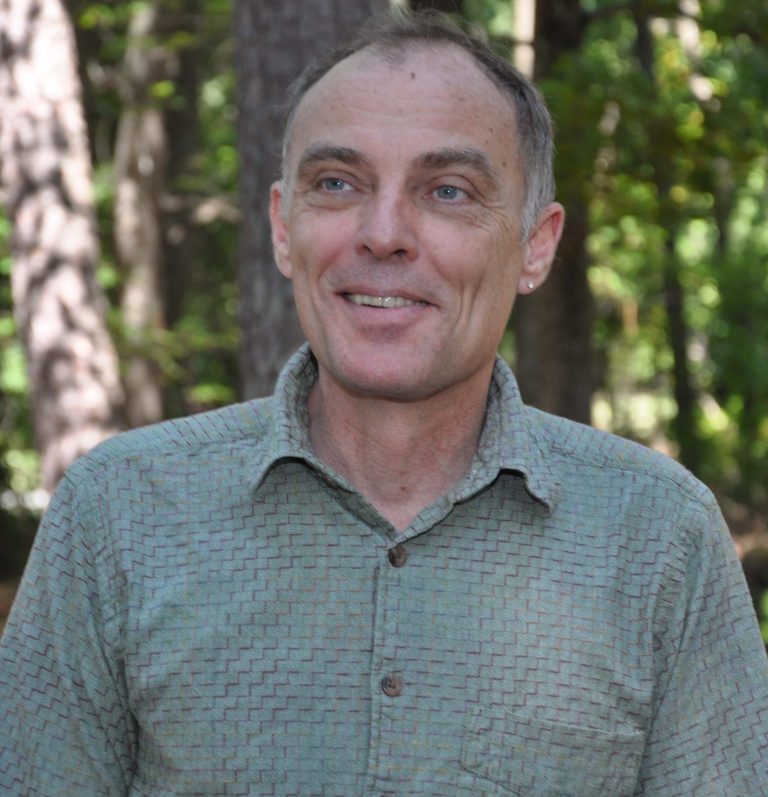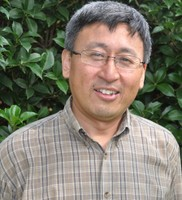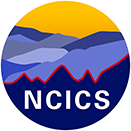In 2021, the North Carolina and Maryland locations of the Cooperative Institute for Satellite Earth System Studies (CISESS) began hosting a series of monthly science seminars. The live seminars are available via WebEx to all CISESS staff as well as NOAA NCEI and STAR. Recordings of each seminar are made available to the public via this web page.
The goal of the series is to present science talks that will be interesting and accessible for a broad audience from across CISESS, NCEI, and STAR (and beyond) and to inspire new research ideas, new opportunities for collaboration, and a better understanding of how NOAA and CISESS products and research are used by our stakeholders. The series features talks from external scientists and CISESS staff.
Upcoming Seminars
Seminars take place online at 11am ET on the second Wednesday of the month.
(Schedule for 2022 seminars coming soon)
If you have any questions about the seminar series, please contact us at info@ncics.org

June 9, 2021 – Forest Landscape Patterns in Changing Climates – Preliminary Results from the Resources Planning Act Assessment
Kurt Ritters, USDA Forest Service
Watch the webinar: Kurt Ritters Seminar
The Resources Planning Act (RPA) Assessment reports on the status and trends of renewable resources throughout the Nation’s forests and rangelands. This covers a range of renewable resources including wildlife and fish, biodiversity, water, outdoor recreation, wilderness, urban forests, and the effects of climate change on them. Like the National Climate Assessment, future ‘scenarios’ in the 2020 RPA are driven by climate and socio-economics. In particular, however, there is an aspect of RPAs that ‘forecast landscape patterns’ decades into the future under different scenarios. This talk will touch on motivations of the RPA, climate/socio-economic/timber models leading to county land-use change information, how these data are disaggregated to higher resolution data, the processing chain of landscape pattern measurements, and how the RPA models the ‘pattern of the change’.
Bio: Dr. Kurt Riitters is a research ecologist and member of the Forest Health Monitoring Team within the Eastern Forest Environmental Threat Assessment Center, and an Adjunct Professor of Forestry at North Carolina State University. He joined the USDA Forest Service Forest Health Monitoring Program in 2000 after fifteen years of research in quantitative forest ecology and management, monitoring, and assessment with three Federal Agencies and in the forest industry. His current research focus is on national- to global-scale assessments of landscape patterns from remotely sensed land-cover maps, and his work has appeared in many environmental reports including the Millennium Assessment, the Official Atlas of the United States, and the State of the Nation’s Ecosystems. He is the USDA Forest Service national leader of landscape pattern and forest fragmentation research for the Resource Planning Act (RPA) and Sustainability (Montreal Process) assessments.
May 12, 2021 – Inferring Causation from Time Series with Perspectives in Earth System Sciences
Jakob Runge, Institute of Data Science, German Aerospace Center.
Watch the webinar: Jakob Runge Seminar
The heart of the scientific enterprise is a rational effort to understand the causes behind the phenomena we observe. In disciplines dealing with complex dynamical systems, such as the Earth system, replicated real experiments are rarely feasible. However, a rapidly increasing amount of observational and simulated data opens up the use of novel data-driven causal inference methods beyond the commonly adopted correlation techniques. In this talk I will present an overview of causal inference and identify key tasks and major challenges where causal methods have the potential to advance the state-of-the-art in Earth system sciences. I will also present the causal inference benchmark platform www.causeme.net that aims to assess the performance of causal inference methods and to help practitioners choose the right method for a particular problem.
Bio: Dr. Jakob Runge heads the Climate Informatics working group at the German Aerospace Center’s Institute of Data Science in Jena since 2017 and is guest professor of computer science at TU Berlin since 2021. His group combines innovative data science methods from different fields (graphical models, causal inference, nonlinear dynamics, deep learning) and closely works with experts in the climate sciences and beyond. Jakob studied physics at Humboldt University Berlin and obtained his PhD at the Potsdam Institute for Climate Impact Research in 2014. For his studies he was funded by the German National Foundation (Studienstiftung) and his thesis was awarded the Carl-Ramsauer prize by the Berlin Physical Society. In 2014 he won a $200.000 Fellowship Award in Studying Complex Systems by the James S. McDonnell Foundation and joined the Grantham Institute, Imperial College, from 2016 to 2017. In 2020 he won an ERC Starting Grant with his interdisciplinary project CausalEarth. On https://github.com/jakobrunge/tigramite.git he provides Tigramite, a time series analysis python module for causal inference. For more details, see: www.climateinformaticslab.com.


April 14, 2021 – Climate Change, Pollen Exposure Dynamics and Burden of Allergic Disease in the Northeast United States
Amir Sapkota, University of Maryland School of Public Health
Watch the webinar: Amir Sapkota Seminar
Ongoing climate change is altering the timing of spring onset which is closely tied to tree pollen dynamics (start/end of pollen season, timing of peak pollen concentration, and length of pollen season). Leveraging satellite observations and asthma hospitalization records, the presentation will focus on how these ongoing changes are impacting burden of allergic at local level. The presentation will further explore adaptation strategies to these emerging threats.
Bio: Dr. Sapkota is a Professor of Environmental Health at the University of Maryland School of Public Health. His research focuses on the intersection of climate change and human health with a particular emphasis on diarrheal disease and cardiopulmonary health outcomes. He works closely with the Maryland Department of Health to address issues related to climate change and health in Maryland. He is also developing an early warning system for diarrheal diseases in the Asia Pacific Region to enhance community resilience against the threats of climate change. https://sph.umd.edu/people/amir-sapkota
March 10, 2021 – Climate–Water–Forest Interactions in the Southern United States and Beyond
Ge Sun, USDA Forest Service
Watch the webinar: Ge Sun Seminar
Understanding the impacts of land-use change and water stress, and the Water Supply Stress Index Model (WaSSI).
Bio: Dr. Ge Sun is the Director of the EFETAC research unit. He is a research hydrologist and a USDA professor of hydrology at North Carolina State University. His research focus is on regional and national assessments of climate change and forest management impacts on water and carbon resources using eddy flux towers, paired watersheds, and integrated simulation models. https://www.srs.fs.usda.gov/staff/gesun

